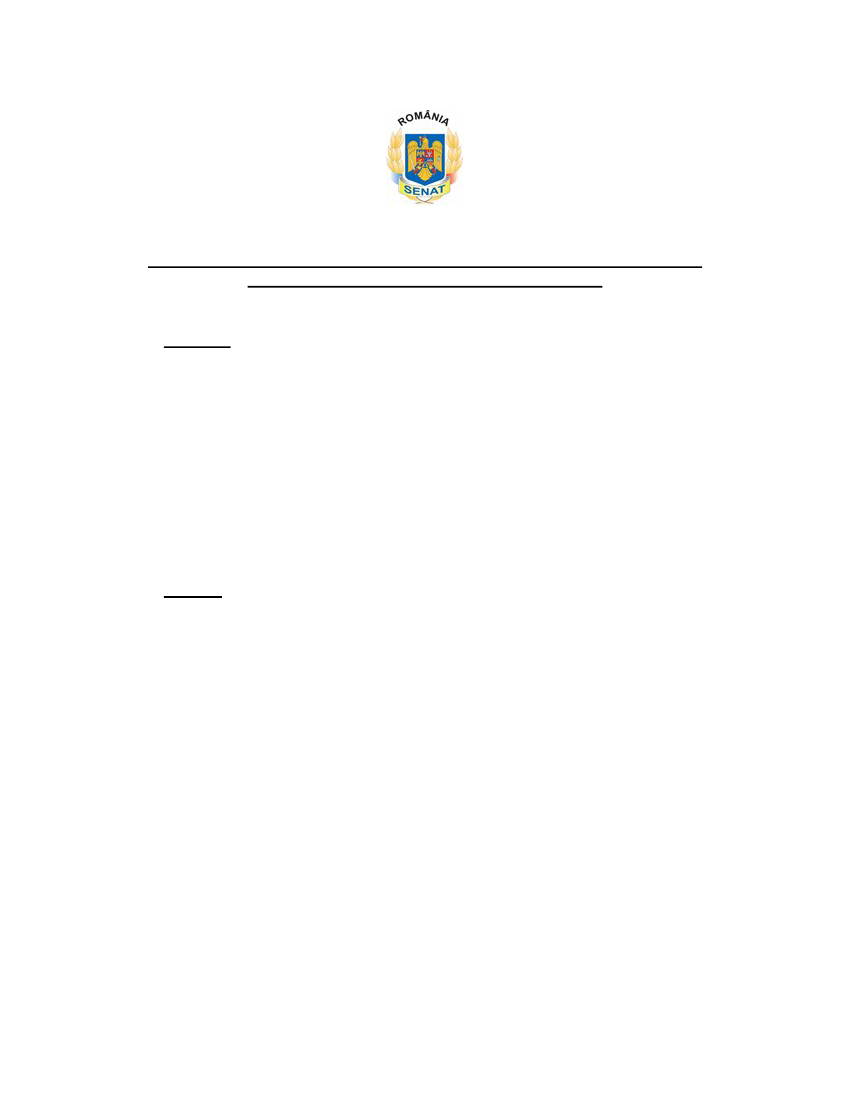
Reply to the ECPRD request no. 6116 on
“The
offering of a financial advantage in
exchange for the resignation of a seat in parliament”
Questions
1) Is there any legislation or other form of regulation, such as a code of conduct, that
prohibits:
i. A Member of Parliament from accepting a financial advantage on the condition that they
resign their seat;
ii. The act of offering such a proposal, including by individuals from the member’s
own
party.
2) If so, what does the regulation entail, and how is it enforced?
Answers
1. There is no explicit provision in Romanian legislation that addresses the resignation of
a Member of Parliament in direct exchange for financial gain. However, such an act would fall
under the umbrella of criminal corruption, as defined by the national criminal legislation and anti-
corruption framework.
According to Article 69 of the Romanian Constitution, the parliamentary mandate is not
subject to binding instructions
—
meaning that MPs cannot be legally obligated or externally
influenced in how they exercise or terminate their mandate.
Additionally, under Law No. 96/2006 on the Statute of Deputies and Senators, elected
officials are required to observe the principles of legality and good faith, and are prohibited from
entering into financial or contractual commitments with individuals or entities that may
compromise the integrity of their duties.
Thus, if a financial offer is made or accepted with the purpose of inducing a resignation,
this conduct would likely be interpreted as bribery or influence peddling, depending on the
circumstances.
1